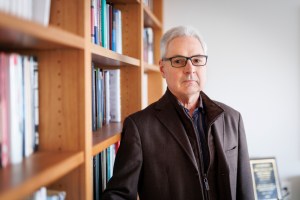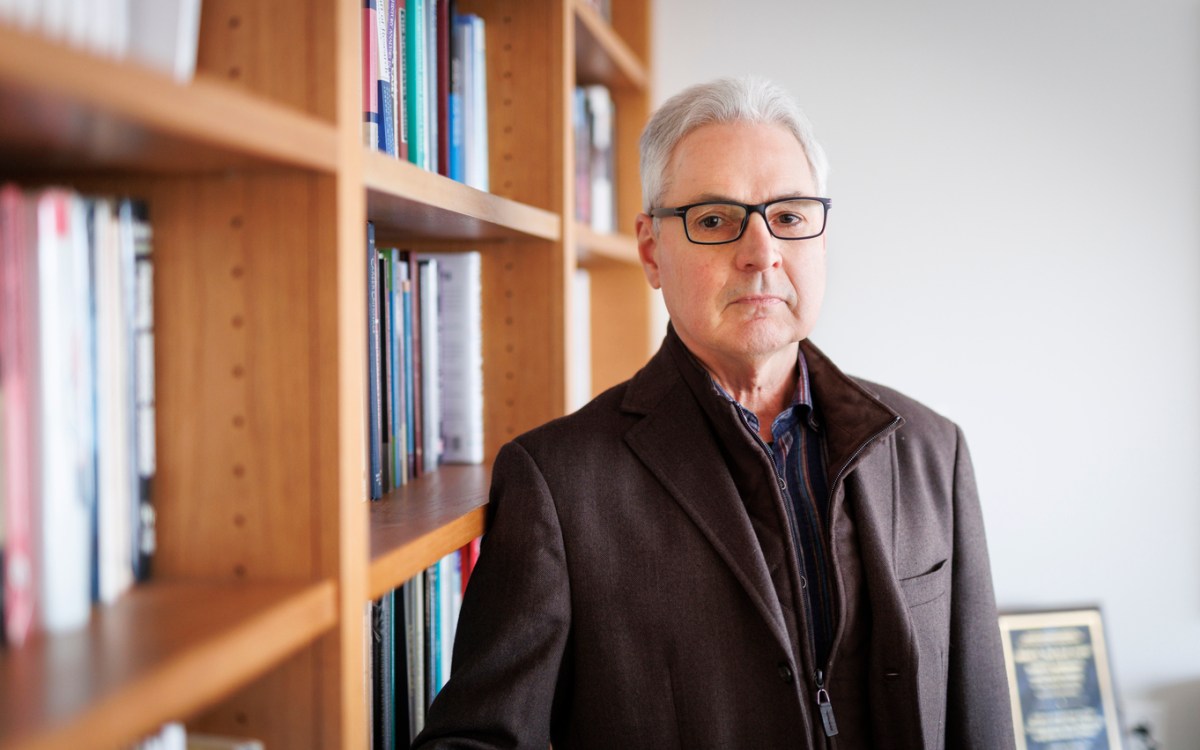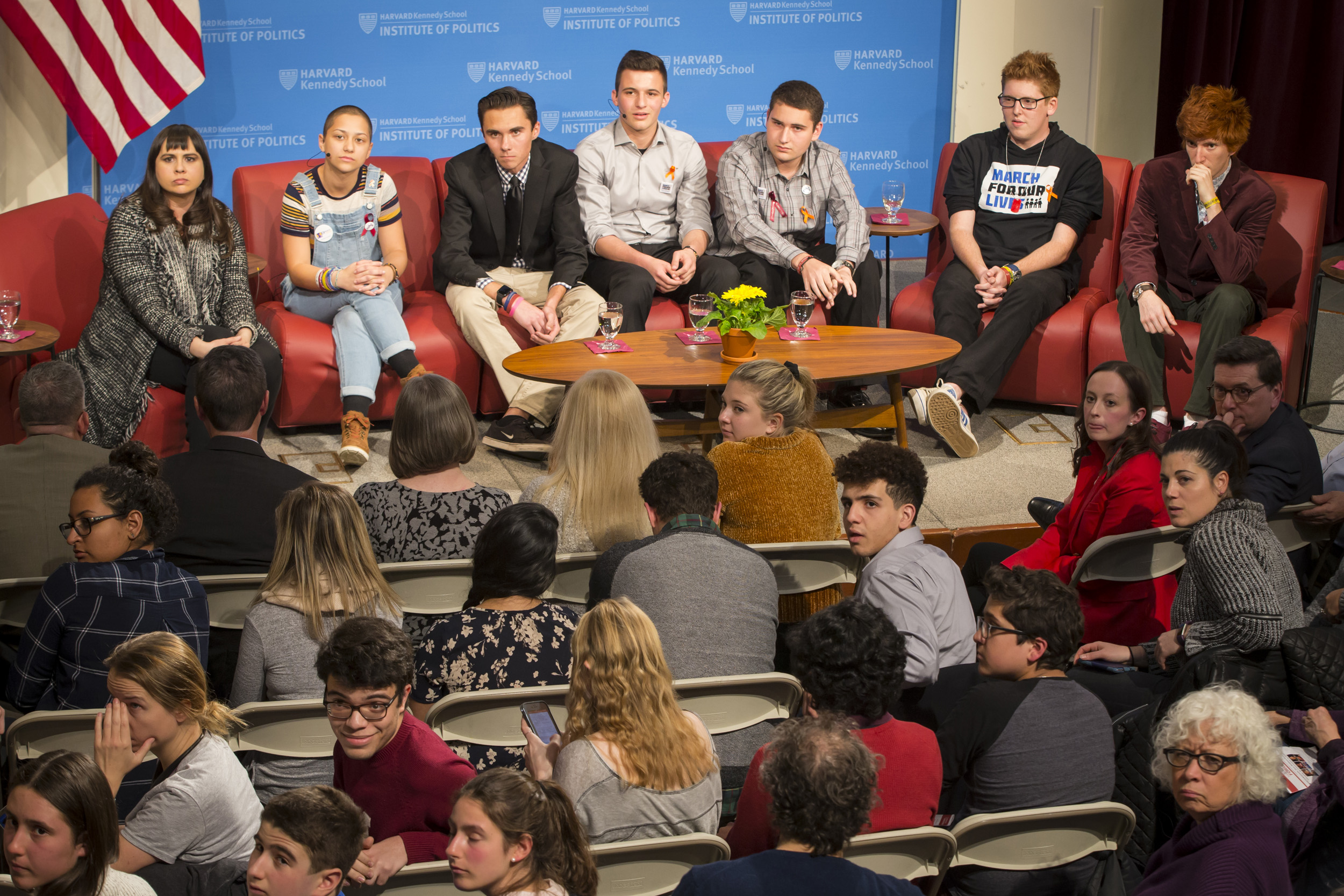
In the five weeks since the massacre at their high school, students Emma Gonzalez (from left), David Hogg, Cameron Kasky, Alex Wind, Matt Deitsch, and Ryan Deitsch have become among the most recognizable faces in the #NeverAgain movement.
Rose Lincoln/Harvard Staff Photographer
Parkland students: The violence must stop here
At Harvard, they explain their dedication to reducing gun deaths, and their plans to keep pushing for action
You know something special is brewing when the most talked about public event at Harvard in some time is a discussion featuring high school students.
But the students from Marjory Stoneman Douglas High School in Parkland, Fla., are no ordinary juniors and seniors. Perhaps not since the days of the Student Nonviolent Coordinating Committee has a small group of students been able to light a flame under America on an issue that many thought was hopelessly intractable, in this case gun violence.
In the five weeks since the Feb. 14 killing of 17 at their high school by a young gunman, students Matt and Ryan Deitsch, Emma Gonzalez, David Hogg, Cameron Kasky, and Alex Wind have become among the most recognizable faces and passionate voices for #NeverAgain, a movement that has pushed the debate over gun safety and violence past the usual political barriers.
During a visit to the Harvard Kennedy School hosted by the Institute of Politics Tuesday evening, the students shared how they have tried to transform the pain and tragedy they experienced in the attack into a powerful national movement for student activism and social change.
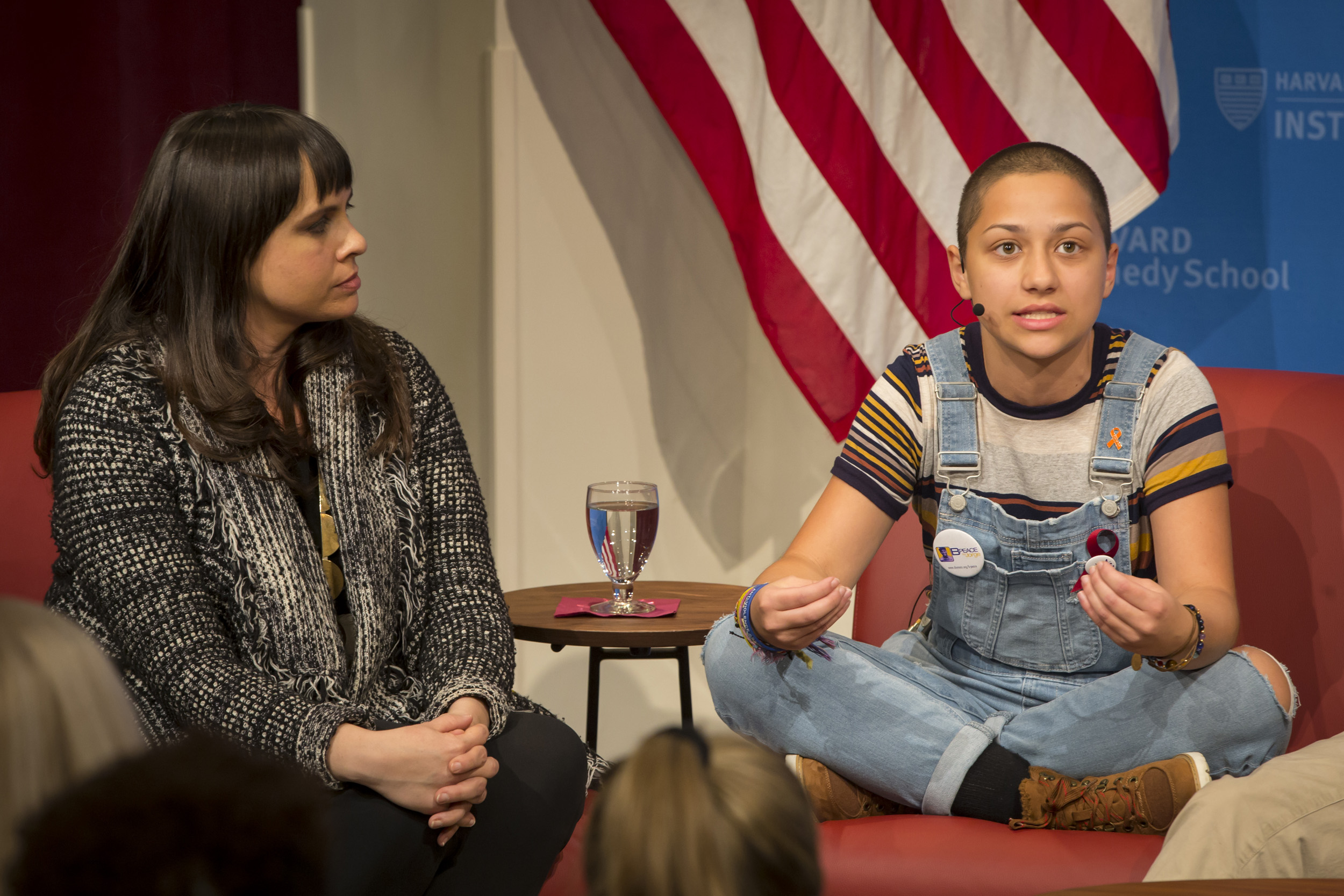
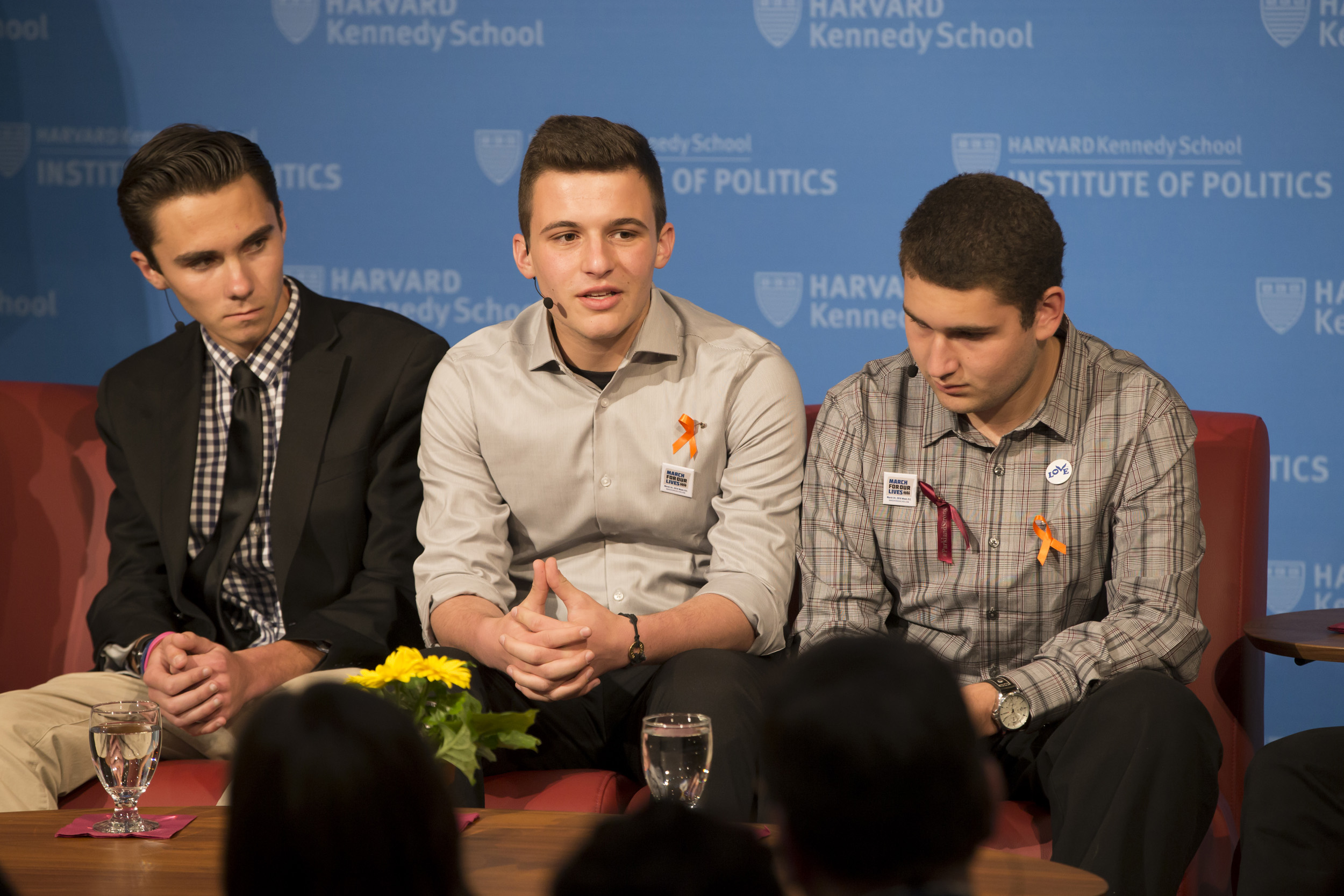
Moderator Meighan Stone (left) and Emma Gonzalez; David Hogg (from left), Cameron Kasky, and Alex Wind.
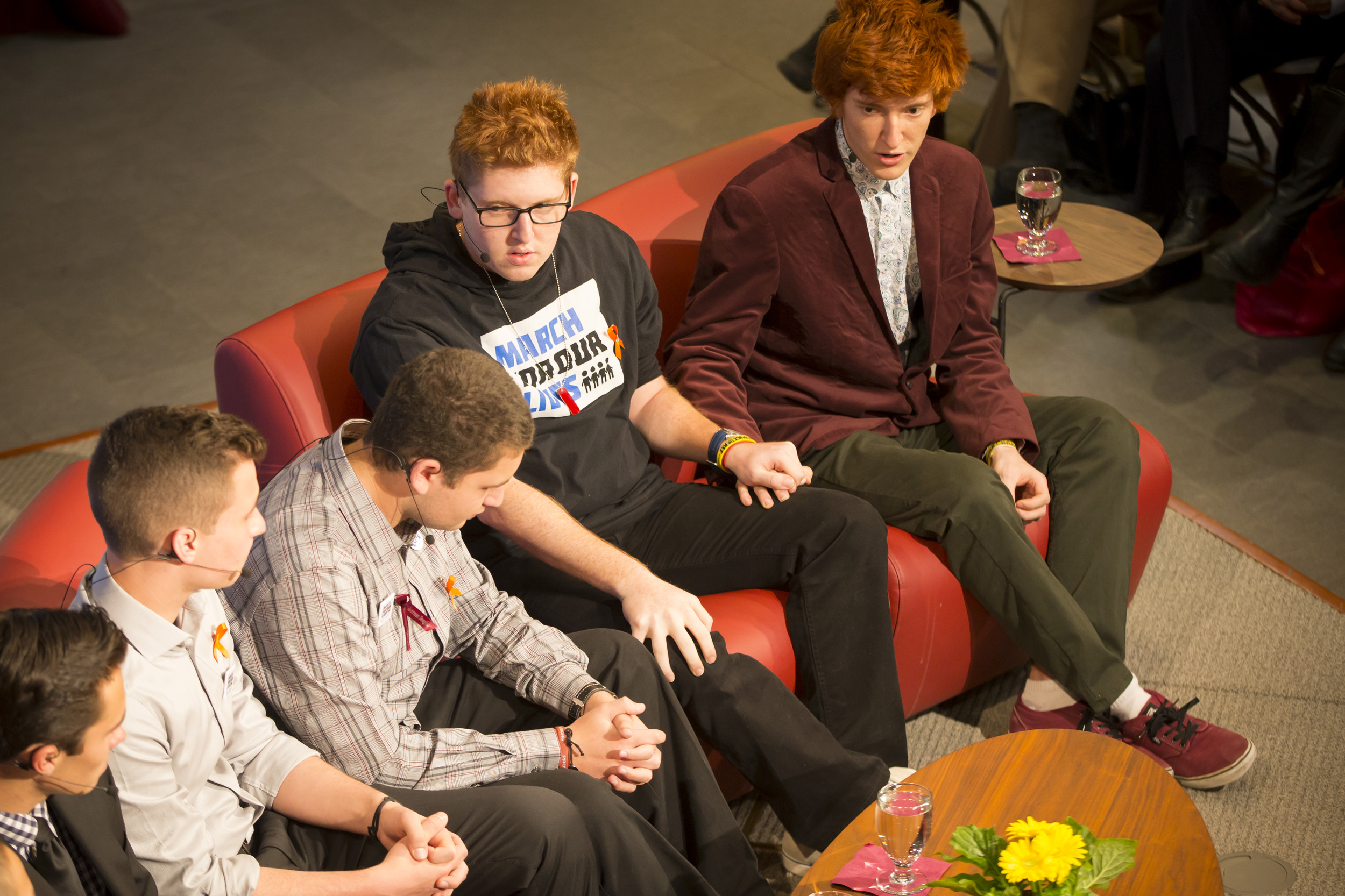
Matt (left) and Ryan Deitsch.
Photos by Rose Lincoln/Harvard Staff Photographer
Though it’s important to remember those killed with moments of silence, Hogg said, what is most essential is that students make their voices heard and hold elected officials accountable so that mass killings will stop.
“We’ve been silent for too long as a nation. We’ve allowed these things to continue for too long,” he said. “What’s important is that we speak up to legislators and let them know that this is what their constituents want. And if they choose not to vote on the side of human lives that are innocently taken ever year, that’s OK, because we’ll vote you out. It’s as simple as that.”
“We spoke out. We said, ‘No, you’re not controlling our narrative, you are not telling our story.’”
Cameron Kasky
Following a nationwide March 14 walkout from classes to honor the Parkland victims and to protest both gun violence in schools and inaction by lawmakers on the issue, the Florida students and their supporters plan to convene in Washington, D.C., on Saturday for the “March For Our Lives,” aimed at urging Congress and the president to adopt tighter gun regulations. Several hundred student-led marches, which will also emphasize voter registration, are planned for cities and towns across the United States and abroad.
Asked by moderator Meighan Stone, senior fellow in the Council on Foreign Relations’ Women and Foreign Policy Program, how a few Florida high school students came to start an outward-reaching movement instead of simply retreating into the safety of their homes after the attack, Kasky said he was riding home that fateful day with his father and brother, listening to the news, when something hit him. “I started to realize: I’ve seen this before, I’ve seen this happen countless times. What happens is we get two weeks in the news, we get a bundle of thoughts and prayers, everybody sends flowers, and then it’s over and people forget.”
Wanting to force change, Kasky knew that time was critical. “We spoke out. We said, ‘No, you’re not controlling our narrative, you are not telling our story. We see past the façade that this is inevitable and this is the price of our freedom. We know that we can fix this, but we have to jump now. We have to start now.’ So I instantly started writing, David instantly started writing and speaking, and soon enough Emma gave her speech. Alex was speaking. We all got together. We assembled on my living room floor.”
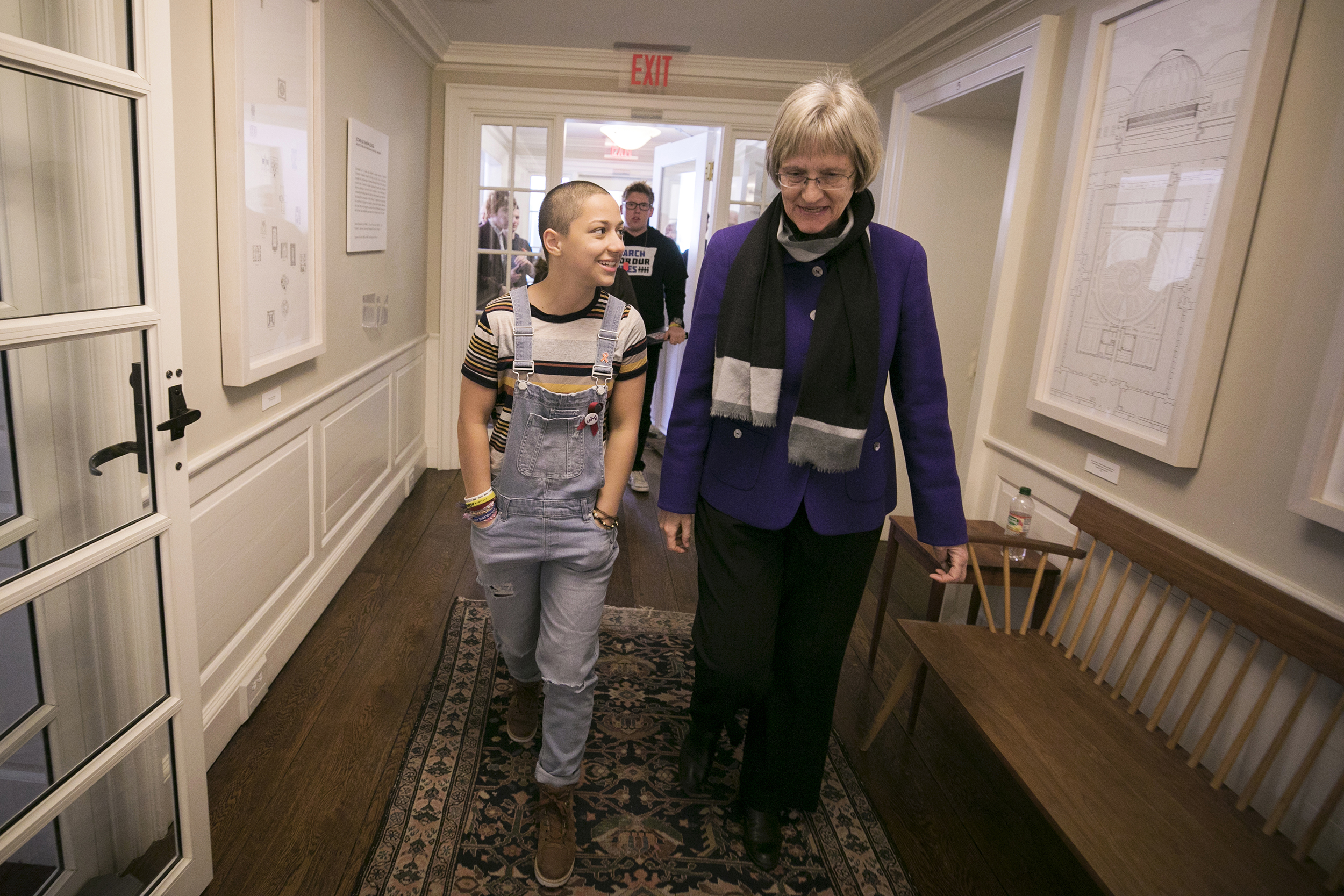
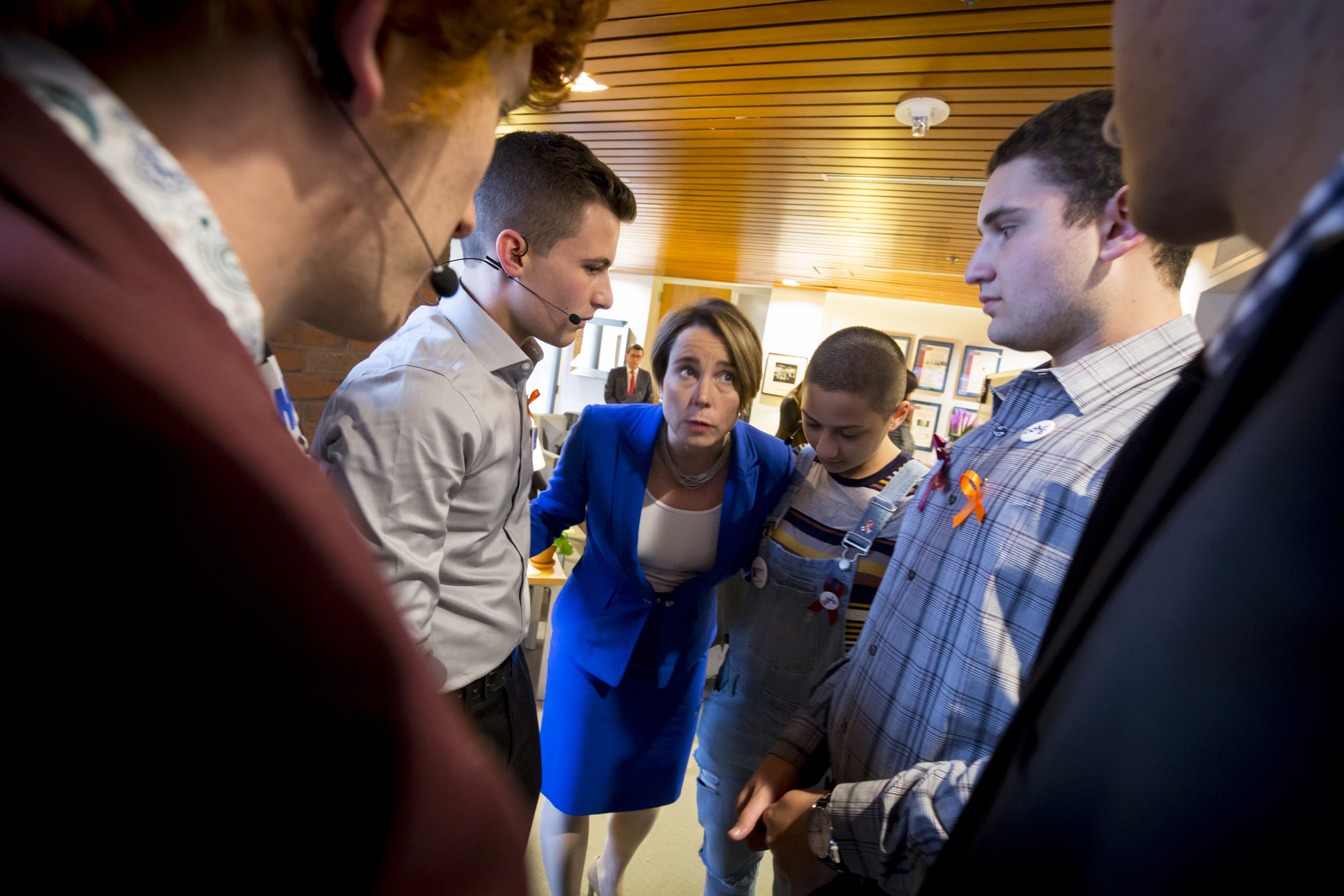
The students met Harvard President Drew Faust earlier in the day and later huddled with Attorney General Maura Healey, who attended the forum.
Stephanie Mitchell/Harvard Staff Photographer; Rose Lincoln/Harvard Staff Photographer
It was a limited victory, but the student activists persuaded Florida lawmakers and Gov. Rick Scott to change state gun laws for the first time in 20 years. The legislation raised the minimum purchase age for guns from 18 to 21, instituted a three-day waiting period for gun purchases while background checks are conducted, and banned the sale of bump stocks. Still, the students say their work is far from done.
They acknowledge they’re still processing their grief, but say that the best way to channel their energy and pay respect — not only to the 17 friends, teachers, and coaches they lost, but to those killed by gun violence in other communities — is to press forward with the fight.
More like this
“Never quiet down, never stop asking them questions, even if it’s your favorite elected official. Every time they do something, look into it,” Kasky advised students.
The Florida students began their day with breakfast at Annenberg Hall. They visited with IOP fellows and students, met with high school students from Boston and Cambridge, stopped by Kirkland House, and talked with Harvard President Drew Faust at Massachusetts Hall.
Despite the hot-button nature of the debate and the preponderance of Republican politicians who support sweeping gun rights and accept campaign donations from the National Rifle Association, the students say they want to keep partisanship out of the movement to the extent they can. “Bullets don’t discriminate, so why should we?” said Gonzalez.
They are urging high school and college-age students to register to vote and to turn out on the issue in the fall elections. Their goal is to press every member of Congress to take a public stance on gun-safety legislation before the midterm elections in November.
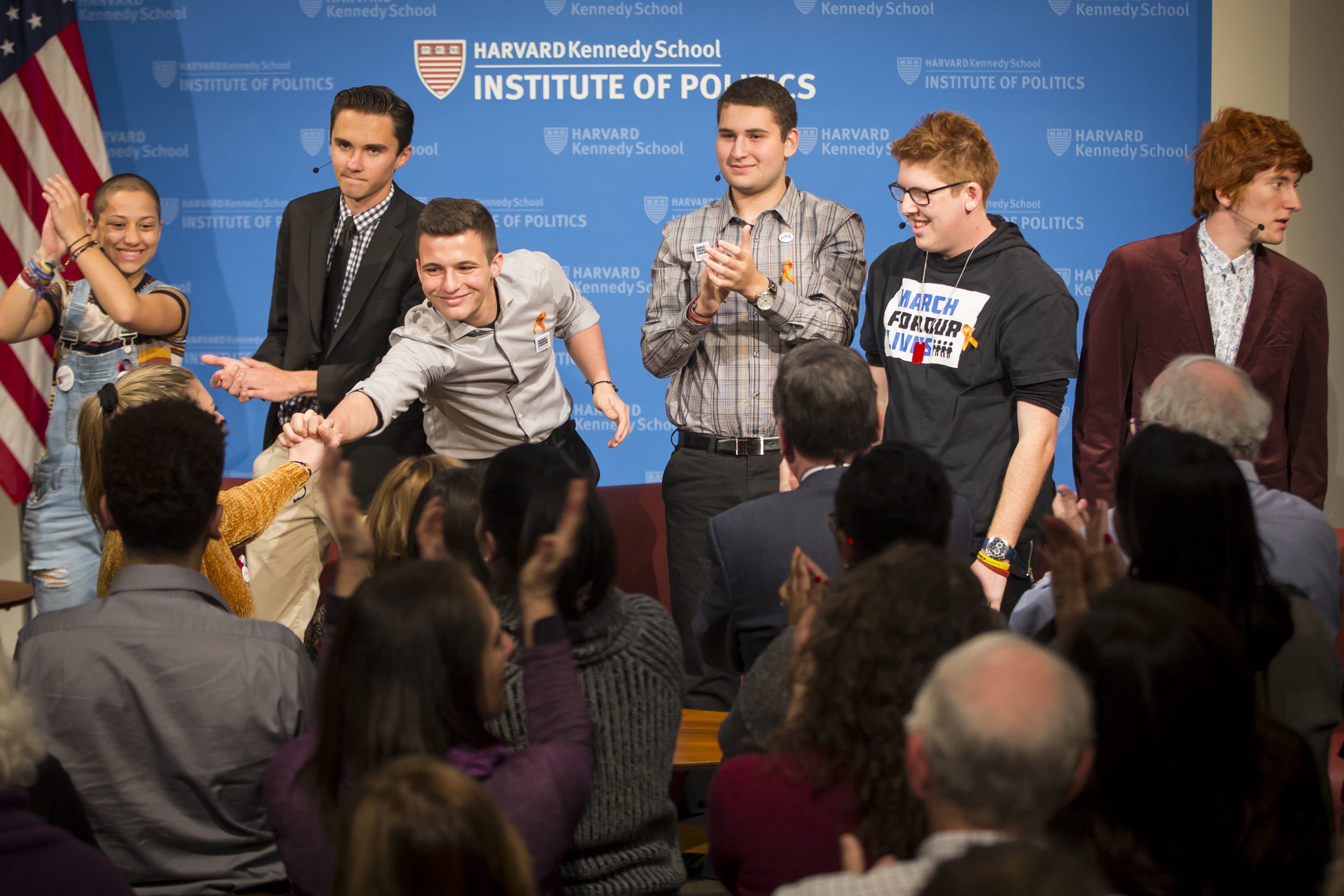
Rose Lincoln/Harvard Staff Photographer
“I don’t think this movement would be possible if we weren’t teenagers… because we are the only ones able to reach out to the youth and connect with the 18- to-25-year-olds and show them it’s our time to make change in this country,” said Wind.
The Florida students are allied in their goals, but they have developed their own public personas in recent weeks:
- An aspiring journalist, Ryan Deitsch recorded the massacre on his phone as it unfolded while he and others hid inside a closet as the gunman roamed the halls. Matt Deitsch is Ryan’s older brother.
- Gonzalez called “BS” on adults, especially lawmakers, who offered gestures of concern on social media after the incident but refused to buck the NRA or do anything to reduce access to guns.
- Hogg rose to national attention early on for sharp criticism of President Trump and the NRA in a series of TV interviews. He was accused by NRA supporters, including Donald Trump Jr., the president’s eldest son, of being a “crisis actor,” in part because Hogg’s father is a former FBI agent.
- Kasky received death threats after, during a contentious Feb. 21 town hall event organized by CNN, he sharply questioned U.S. Sen. Marco Rubio about his track record of accepting campaign donations from the NRA. Kasky and his best friend, Alex Wind, were two of the three students who founded the #NeverAgain movement as a vehicle to change U.S. gun laws.
The student panelists said they oppose efforts proposed in Florida to arm teachers, and said they credited several of their teachers for helping them to learn how the NRA lobbies, how politics and government operate, and how to write speeches with clear points of view. Asked by one teacher what educators can do for the #NeverAgain movement, they suggested that instructors inspire students to vote, keep their own political views out of the classrooms, and help students to understand the real-world implications of policy rather than party affiliation.
Asked about the whirlwind changes the group has experienced since taking the national stage, Ryan Deitsch recounted a recent meeting on Capitol Hill with U.S. Rep. John Lewis (D-Ga.), who served as chairman of the Student Nonviolent Coordinating Committee in the 1960s and became an important Civil Rights leader while still in his early 20s. Lewis has encouraged the student-led movement to keep pushing toward its goals. Knowing what Lewis endured, what he achieved, and what he is still fighting for, Deitsch said, has inspired him and made him hopeful for his burgeoning movement’s future.
“We’re always taught that the Civil Rights movement is something that happened in the past, and that change doesn’t really happen in today’s society. But that’s not true. We can see change every day if we just put our minds to it,” he said.


